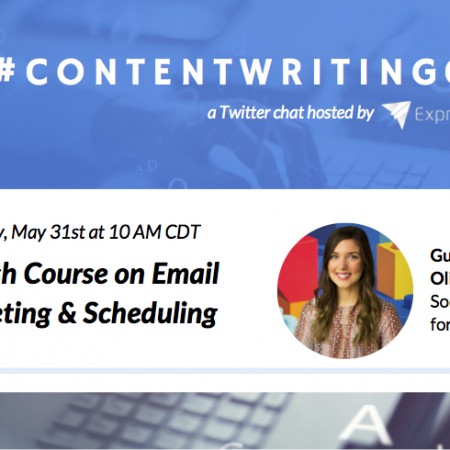
Hey, friends! Did you miss #ContentWritingChat this week? Have no fear! You can get caught up with our...

Hey, friends! Did you miss #ContentWritingChat this week? Have no fear! You can get caught up with our...

Did you miss #ContentWritingChat this week? There’s no need to worry! You can get caught up right here...

Did you miss #ContentWritingChat this Tuesday? Dive into the recap below and learn some of the best social...

Did you miss #ContentWritingChat this week? There’s no need to worry, my friend. We have you covered with...

Did you miss this week’s #ContentWritingChat? If so, you missed an amazing discussion! There’s no need to worry...

Did you miss #ContentWritingChat this week? There’s no need to worry! We have you covered with a recap...

Did you miss #ContentWritingChat this week? Before you hit “send” on your next email newsletter, get caught up...

Did you miss this week’s #ContentWritingChat? There’s no need to worry, friends! Dive into our recap of Tuesday’s...

If you missed #ContentWritingChat this week, grab a snack and catch up with the recap of our latest...

Did you miss our #ContentWritingChat this week? If you did, you missed a great chat! However, there’s no...
No HR needed to get access to the best writers, editors, QAs, and strategists. We are your all-in-one content writing service delivering publish-ready content.
Copyright – 2025 Express Writers -All rights reserved